Links to external sources may no longer work as intended. The content may not represent the latest thinking in this area or the Society’s current position on the topic.
Healthy ageing

This conference explored fundamental science of healthy ageing and social considerations (including the NHS).
Read the conference report here (PDF).
Healthy ageing was a two-day conference held by the Royal Society and the Academy of Medical Sciences' FORUM. The UK Government has set the Grand Challenge of achieving five extra years of healthy older age by 2035, but achieving this will be reliant on innovations in research and health and social care systems that benefit people of all ages and backgrounds. Speakers discussed scientific advances across ageing research, from basic mechanisms that drive ageing through to novel treatments and other interventions - considering how we define healthy ageing and prioritise the most effective research and innovations. The meeting addressed the implications of our ageing population for society, policy, and the health and social care systems. Finally, it considered how healthier older age can be realised through research, policy and other initiatives, exploring the ethical, social and economic frameworks that will be needed to ensure sustainable and fair benefit for all.
Attending this event
This open event was free to attend and was intended for participants with an interest in the life sciences sector from a variety of backgrounds including academia, industry, government, as well as regulatory and other scientific bodies.
Contact the Industry team for more information.
About the conference series
This meeting forms part of the Royal Society's Transforming our Future series and the Academy of Medical Sciences' FORUM programme.
The Transforming our Future meetings are unique, high-level events that address scientific and technical challenges of the next decade and bring together leading experts from wider scientific community, industry, government and charities. The meetings are organised with the support of the Royal Society Science, Industry and Translation Committee.
The Academy's FORUM programme brings together industry, academia and the NHS, and the charity, regulatory and wider healthcare sectors. It provides an independent platform to bring together leaders from across the life sciences sector to discuss scientific opportunities, technology trends, translational challenges and strategic choices in healthcare.
Sign up for the scientists' newsletter to receive updates about industry programme activity and events.
Organisers
Schedule
| 09:00 - 09:15 |
Welcome
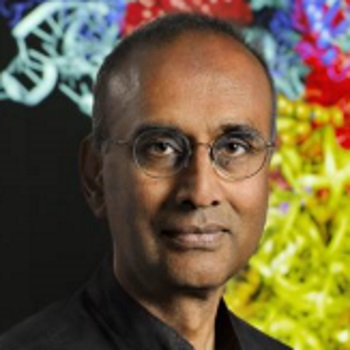
Venki Ramakrishnan, President, The Royal Society

Venki Ramakrishnan, President, The Royal SocietyVenki Ramakrishnan has a long-standing interest in ribosome structure and function. In 2000, his laboratory determined the atomic structure of the 30S ribosomal subunit and its complexes with ligands and antibiotics. This work has led to insights into how the ribosome “reads” the genetic code, as well as into various aspects of antibiotic function. In the last few years, Ramakrishan’s lab has determined the high-resolution structures of functional complexes of the entire ribosome at various stages along the translational pathway, which has led to insights into its role in protein synthesis during decoding, peptidyl transfer, translocation and termination. More recently his laboratory has been applying cryoelectron microscopy to study eukaryotic and mitochondrial translation. Since 1999, he has been on the scientific staff of the MRC Laboratory of Molecular Biology in Cambridge and he is currently President of the Royal Society. |
|---|
| 09:15 - 09:50 |
Keynote - Can We Prevent Ageing?
Human life expectancy in many parts of the world has increased substantially. Unfortunately healthy lifespan has not kept up and there is a growing period of disability and ill health at the end of life. The ageing population is therefore often seen as an increasingly alarming burden for society. Because ageing is the major risk factor for so many chronic and killer diseases, scientific attention has turned to the underlying ageing process itself, and the mechanisms by which it leads to disability and illness. The characteristic hallmarks of ageing are largely identified and are conserved in evolution. They have turned out to be remarkably malleable to environmental, genetic and pharmacological interventions, which also prevent age-related diseases. These discoveries are moving forward into the commercial sector and clinical trials, and it is now realistic to foresee medical interventions into the ageing process that will prevent more than one age-related disease. We may thus be able to maintain health until closer to the end of life. 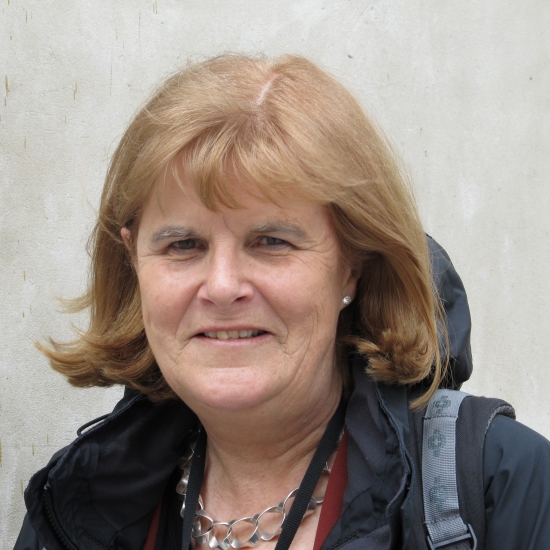
Professor Dame Linda Partridge FMedSci FRS, Director, Institute of Healthy Ageing, University College London

Professor Dame Linda Partridge FMedSci FRS, Director, Institute of Healthy Ageing, University College LondonLinda Partridge works on the biology of ageing. Her research is directed to understanding the mechanisms by which healthy lifespan can be extended in laboratory model organisms and humans. Her work has focused in particular on the role of nutrient-sensing pathways, such as the insulin/insulin-like growth factor signalling pathway, and on the role of diet. She is the recipient of numerous awards, including the Royal Society's Croonian Prize Lecture, and was honoured with a DBE for Services to Science in 2009. She is a Fellow of the Royal Society, the Academy of Medical Sciences and a foreign member of the American Academy of Arts and Sciences. She is Director of the Institute of Healthy Ageing at UCL and the founding director of the Max Planck Institute for Biology of Ageing in Cologne, Germany. |
|---|---|
| 09:50 - 10:25 |
Keynote - The Challenge of Healthy Ageing: Social science issues and perspectives
The way in which health, social circumstances and economic factors evolve over people's lives is inexorably intertwined. Only by understanding all three, and the dynamic interrelationships between them, can we really understand the evolution of health and lifestyles as people age. Even then, many policy issues associated with population ageing, whether these are challenges or opportunities, cannot be adequately understood by studying individual ageing processes in isolation, a more general economy-wide perspective is required. This talk will discuss these issues, with specific reference to recent UK evidence and the current debate surrounding the Grand Challenge on Healthy Ageing. 
Professor James Banks, University of Manchester and IFS

Professor James Banks, University of Manchester and IFSJames Banks is Professor of Economics at the University of Manchester and Senior Research Fellow at the Institute for Fiscal Studies where he is one of the Co-Directors of the ESRC Centre for the Microeconomic Analysis of Public Policy. He is also Co-Principal Investigator of the English Longitudinal Study of Ageing and collaborates with or advises similar large-scale interdisciplinary ageing studies all around the world, including in the US, Europe, China, India, Brazil, Japan and South Africa. His research focuses on all aspects of the economics of ageing, including: savings and pensions; cognition and financial decision making; work, retirement, health and disability at older ages. He has served on advisory groups for Department of Work and Pensions, Department of Health and the Office of National Statistics, and was recently on the lead expert group for the Government Office for Science Foresight Project on Analysing the Challenges and Opportunities of an Ageing Society. |
Chair

Professor Dame Linda Partridge FMedSci FRS, Director, Institute of Healthy Ageing, University College London

Professor Dame Linda Partridge FMedSci FRS, Director, Institute of Healthy Ageing, University College London
Linda Partridge works on the biology of ageing. Her research is directed to understanding the mechanisms by which healthy lifespan can be extended in laboratory model organisms and humans. Her work has focused in particular on the role of nutrient-sensing pathways, such as the insulin/insulin-like growth factor signalling pathway, and on the role of diet.
She is the recipient of numerous awards, including the Royal Society's Croonian Prize Lecture, and was honoured with a DBE for Services to Science in 2009. She is a Fellow of the Royal Society, the Academy of Medical Sciences and a foreign member of the American Academy of Arts and Sciences. She is Director of the Institute of Healthy Ageing at UCL and the founding director of the Max Planck Institute for Biology of Ageing in Cologne, Germany.
| 10:55 - 11:20 |
Targeting the biology of ageing to prevent or treat ageing-related diseases
Ageing is a biology regulated in part by a protein complex called target of rapamycin complex 1 (TORC1). Inhibition of TORC1 has extended lifespan and health span in every preclinical species studied to date. These data raise the possibility that drugs that inhibit TORC1 may have therapeutic benefit in ageing-related conditions in humans. One of the mechanisms by which TORC1 inhibition may have benefit in ageing-related diseases is by upregulating autophagy. Autophagy is a process by which cells breakdown and recycle protein aggregates and dysfunctional organelles. Declines in cellular autophagy occur with age and may contribute to the accumulation of damaged misfolded proteins in neurodegenerative diseases such as Parkinson's disease. Based on these findings, a Phase 1b/2a study is ongoing to evaluate whether oral doses of TORC1 inhibitors are well-tolerated in Parkinson's disease patients and achieve central nervous system concentrations predicted to induce autophagy. 
Dr Joan Mannick, resTORbio

Dr Joan Mannick, resTORbioDr Mannick is Chief Medical Officer of resTORbio, a clinical stage biotechnology company that is a spin-out of Novartis and developing medicines that target the biology of ageing to treat or prevent ageing-related diseases. Prior to joining resTORbio, Dr Mannick was an Executive Director in the New Indications Discovery Unit of the Novartis Institutes of Biomedical Research. Prior to joining Novartis in 2010, Dr Mannick was a Medical Director at Genzyme working in multiple therapeutic areas. Prior to Genzyme, Dr Mannick was a faculty member at Harvard Medical School and University of Massachusetts Medical School. Her NIH-sponsored laboratory focused on the role of protein S-nitrosylation in physiology and pathophysiology. Dr Mannick received her AB from Harvard College and her MD from Harvard Medical School. She completed her residency in Internal Medicine at Brigham and Women's Hospital and an Infectious Disease fellowship as part of the Harvard Combined Infectious Disease Program. She is board-certified in Internal Medicine and Infectious Diseases. |
|---|---|
| 11:20 - 11:45 |
Creating medicines that eliminate senescent cells for the treatment of diseases of ageing
UNITY, a healthspan company, is initially focused on eliminating accumulated senescent cells (SnCs), which are a fundamental mechanism of ageing, a driver of many common age-associated diseases and one of the root causes of ageing. UNITY is pioneering the discovery and development of senolytic therapeutics allowing us to halt, slow or reverse age-associated disease and restore tissue to a more functionally healthy state. UNITY has built a unique discovery and development engine that first builds the senescence disease hypothesis in preclinical studies and then evaluates the clinical translation of this hypothesis to patients. UBX0101, a potent senolytic small molecule inhibitor of the MDM2/p53 protein interaction, is being evaluated for the treatment of OA of the knee. Initial results from a Phase 1 clinical trial demonstrated that UBX0101 improved pain and function and modulated SASP factors. UBX1967 and UBX1325, a BCL-2 family inhibitor, are being evaluated for the potential treatment of age-related diseases of the eye, including age-related macular degeneration and diabetic retinopathy. 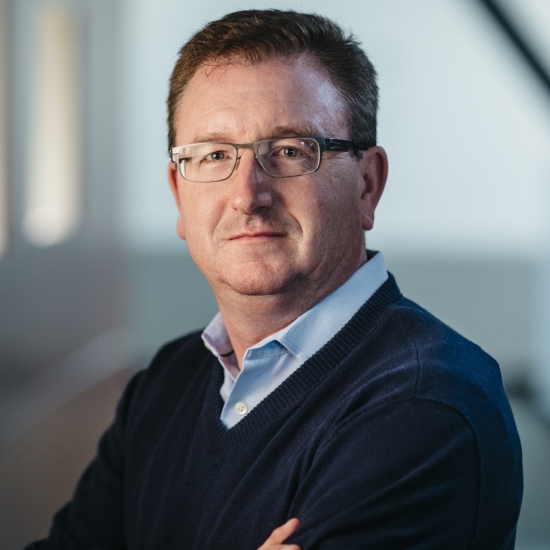
Dr Dan Marquess, Chief Scientific Officer of UNITY Biotechnology

Dr Dan Marquess, Chief Scientific Officer of UNITY BiotechnologyDan is Chief Scientific Officer at UNITY Biotech, leading the company's effort to develop novel senolytic molecules to slow, halt and reverse diseases of ageing, while prolonging the amount of time a person is healthy and disease-free. Prior to UNITY, Dan was Vice President and Head of Medicinal Chemistry at Theravance Biopharma, where he led the chemistry department to leverage Theravance's multivalent approach to drug discovery. Previously, Dan worked at GlaxoSmithKline, Stevenage, UK as a medicinal chemist in the neuroscience discovery unit. Dan holds a DPhil in Organic Chemistry from the University of Oxford and a BSc in Chemistry from the Queen's University, Belfast. He was awarded a NATO postdoctoral fellowship to conduct chemistry research with Professor Paul Wender at Stanford University to complete the total synthesis of the anticancer agent, Taxol. He has authored ~41 papers published in peer-reviewed journals and is an inventor on ~19 patents. |
| 11:45 - 12:10 |
Innate immune ageing: Consequences and corrections
The immune system is remodelled with age resulting in increased risk of infections, reduced vaccination responses and increased risk of autoimmune disease and cancer. This lecture will discuss changes to neutrophil and natural killer cell function with age, the underlying mechanisms involved, the contribution of these changes to the aged phenotype and interventions to correct the deficits. 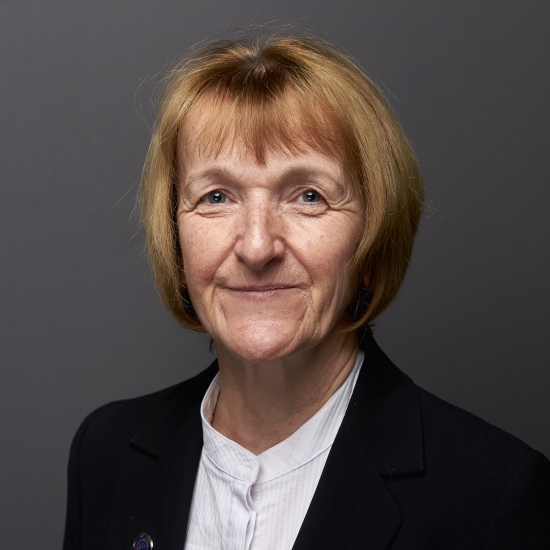
Professor Janet Lord FMedSci, Institute of Inflammation and Ageing, University of Birmingham

Professor Janet Lord FMedSci, Institute of Inflammation and Ageing, University of BirminghamJanet Lord is Professor of Immune Cell Biology and director of the Institute for Inflammation and Ageing at Birmingham University. She is also director of the MRC-Versus Arthritis Centre for Musculoskeletal Ageing Research. Her primary research focus is in the effect of ageing upon immune function and how this limits the ability of older adults to resolve inflammation and predisposes them to chronic inflammatory disease such as Rheumatoid arthritis. In 2013 she was awarded the Lord Cohen of Birkenhead medal for her outstanding research in human ageing by the British Society for Research in to Ageing. She was elected a Fellow of the Academy of Medical Sciences in 2015. |
| 12:10 - 12:35 |
Stemming the Tide of Time
Resident stem cells are the key to healthy organ functional homeostasis. They respond to metabolic demand with increased cell production and regeneration at times following injury and acute disease onset. Quiescence, a state of reversible cell cycle arrest typifies tissue resident stem cells; it preserves their integrity and numbers until physiological stemness is required. Stem cell activity is orchestrated in an interplay between them and the niche they occupy. A consequence of the deregulated choreography between stem cells, their specialised ECM and satellite cells is a rundown of functional tissue integrity observed in ageing. As exemplified by well-defined stem cells of the gut, blood, muscle, skin and brain. Radical strategies in stem cell medicine that target rejuvenation of the niche will be required in order to slow the ageing phenotype, prolonging organ vitality. If successful, the potential could be huge and transformative for future management of age-related conditions. 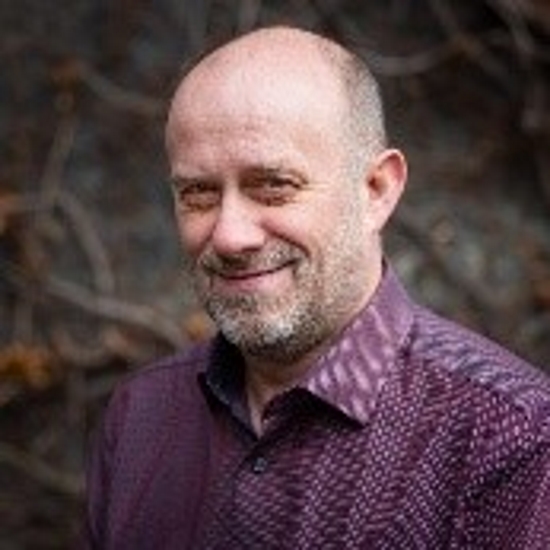
Dr Timothy Allsopp, Chief Scientific Officer, Videregen Ltd

Dr Timothy Allsopp, Chief Scientific Officer, Videregen LtdCurrent Affiliations: - Managing Director, Founder, Consilium Bio Ltd, a life sciences consultancy firm Experience/Expertise: - 20 years in biopharma (founder 2 biotechs, worked Pfizer UK) |
| 12:35 - 13:00 |
Twins Omics and longevity
The microbiota is the community of around 100 trillion microbes that live in our colon that are like a virtual organ. This organ is key to our digestion, appetite, mood, metabolism, and control of our immune system. It is also key to how we respond to most drugs and foods. The TwinsUK cohort of 12,000+ twins has been running for nearly 25 years and is now the most intensively studied group of humans on the planet (www.twinsuk.ac.uk). We are currently using the microbiome data to provide novel measures of health, such as the level of microbial diversity and how this impacts overall health outcomes and ageing. We have demonstrated a modest genetic influence on microbial composition and metabolic function. Our new PREDICT study of over 1100 people is the largest nutrition study of its kind and shows we all react differently to the same foods, even identical twins. Understanding these unique aspects and our unique microbiome profiles are paving the way for the new era of personalised nutrition, which will break the mould of "one size fits all" advice and advance our understanding of ageing. 
Professor Tim Spector FMedSci

Professor Tim Spector FMedSciTim Spector is a Professor of Genetic Epidemiology at King's College London and honorary consultant Physician at Guys and St Thomas' Hospitals. He is also an expert in personalised medicine and the gut microbiome and started the famous UK Twin Registry in 1993. Through his work he has been given many awards and prizes, and is a Fellow of the Royal Society of Biology and the Academy of Medical sciences. He has published over 900 scientific papers and is ranked by Google as being in the top 120 most cited scientists in the world. He has published four popular books (including the best-selling Diet Myth and recently Spoon-Fed), he writes health blogs which have been read by ten million people, and appears regularly on the TV and media round the world. |
Chair

Professor Janet Lord FMedSci, Institute of Inflammation and Ageing, University of Birmingham

Professor Janet Lord FMedSci, Institute of Inflammation and Ageing, University of Birmingham
Janet Lord is Professor of Immune Cell Biology and director of the Institute for Inflammation and Ageing at Birmingham University. She is also director of the MRC-Versus Arthritis Centre for Musculoskeletal Ageing Research. Her primary research focus is in the effect of ageing upon immune function and how this limits the ability of older adults to resolve inflammation and predisposes them to chronic inflammatory disease such as Rheumatoid arthritis. In 2013 she was awarded the Lord Cohen of Birkenhead medal for her outstanding research in human ageing by the British Society for Research in to Ageing. She was elected a Fellow of the Academy of Medical Sciences in 2015.
| 14:00 - 14:25 |
A single-cell view of the ageing somatic genome
Loss of genome sequence integrity due to accumulating somatic mutations has been recognized as a possible causal factor in ageing since the 1950s. As a stochastic process this has been difficult to analyze in a quantitative manner in bulk tissues due to the random occurrence of somatic mutations, resulting in genome mosaics across cell populations. We developed an accurate single-cell approach to quantitatively assess multiple types of mutations, e.g., base substitutions, insertions and deletions, copy number variation, retrotranspositions, in single cells isolated from humans at different time points during normal ageing. Data will be presented on the frequency and spectrum of such mutations in human primary cells as a function of age, as well as the potential functional impact of such mutations. 
Dr Jan Vijg, Professor and Chair, Department of Genetics Albert Einstein College of Medicine

Dr Jan Vijg, Professor and Chair, Department of Genetics Albert Einstein College of MedicineJan Vijg, PhD, is Professor and Chairman of the Department of Genetics at the Albert Einstein College of Medicine in New York since July, 2008. He received his PhD at the University of Leiden, the Netherlands, in 1987. From 1990 to 1993 he was founder and Scientific Director of Ingeny BV, a Dutch Biotechnology company. In 1993 he moved to Boston, to take up a position as Associate Professor of Medicine at Harvard Medical School. In 1998 he accepted an offer from the University of Texas Health Science Center in San Antonio, Texas, to become a Professor in the Department of Physiology. From 2006 to 2008 he was a Professor at the Buck Institute for Age Research in Novato, California. With his research team he was the first to develop transgenic mouse models for studying mutagenesis in vivo (in 1989) and has used these models ever since in studying the relationship between damage to the genome and ageing. He has published over 200 scientific articles and two books, and is inventor or co-inventor on 8 patents. |
|---|---|
| 14:25 - 14:50 |
Understanding and manipulating mitochondrial redox metabolism in ageing
Over the past few years myself and collaborators have developed mitochondria-targeted bioactive and probe molecules. These have included antioxidants that selectively block mitochondrial oxidative damage. Among these molecules are derivatives of the natural antioxidants ubiquinone (MitoQ) and Vitamin E. The antioxidant efficacy of these molecules was increased considerably by targeting them to mitochondria, which are the major source of oxidative stress in mammalian cells. This was achieved by covalent attachment of the antioxidant to a lipophilic cation. Due to the large mitochondrial membrane potential, these cations accumulate several hundred fold within mitochondria, protecting them from oxidative damage far more effectively than untargeted antioxidants. This was extended to develop the related mitochondria-targeted nitric oxide donor, MitoSNO, which is protective against cardiac ischemia-reperfusion injury. In parallel work we have developed the mitochondria-targeted hydrogen peroxide probe MitoB, that enables us to utilise ex vivo mass spectrometry to assess mitochondrial hydrogen peroxide production in vivo. Here I will focus on how the used of these probes and bioactive molecules in helping to understand the role of mitochondrial redox processes in ageing. 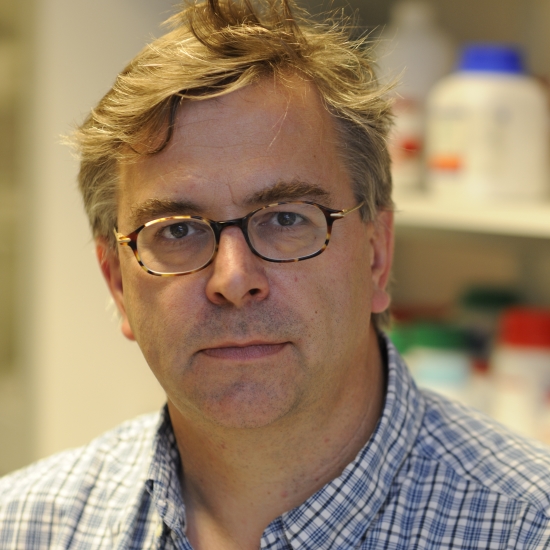
Professor Mike Murphy FMedSci, University of Cambridge

Professor Mike Murphy FMedSci, University of CambridgeMike Murphy received his BA in chemistry at Trinity College, Dublin in 1984 and his PhD in Biochemistry at Cambridge University in 1987. After stints in the USA, Zimbabwe, and Ireland he took up a faculty position in the Biochemistry Department at the University of Otago, Dunedin, New Zealand in 1992. In 2001 he moved to the MRC Mitochondrial Biology Unit in Cambridge, UK (then called the MRC Dunn Human Nutrition Unit) where he is a programme leader. Murphy's research focuses on the roles of reactive oxygen species in mitochondrial function and pathology. In particular he has pioneered the targeting of bioactive and probe molecules to mitochondria in vivo. Murphy is Professor of Mitochondrial Redox Biology at the University of Cambridge, a Wellcome Trust Investigator, honorary research Professor at the University of Otago, New Zealand, a recipient of the Keilin Medal from the Biochemical Society, an honorary Fellow of the Royal Society of New Zealand and a Fellow of the Academy of Medical Sciences (FMedSci). |
| 14:50 - 15:15 |
Nutrient-specific appetites and the nutritional ecology of healthy ageing
Appetite is not a unitary phenomenon, rather there are nutrient-specific appetite systems, which have evolved to cooperate to help animals achieve a balanced diet. These specific appetites manage the vastly multidimensional challenge of balancing an animal's simultaneous and changing requirements for dozens of different macro and micro-nutrients and other food components (e.g. fibre). However, nutrient-specific appetites will compete rather than cooperate in an imbalanced nutritional environment, leading to the expression of regulatory priorities for some nutrients (e.g. protein) over others, with profound impacts on energy intake, health and ageing. I will explore these concepts using the Nutritional Geometry Framework, introducing data from a range of species, from slime moulds to humans. 
Professor Stephen J Simpson AC FRS, University of Sydney

Professor Stephen J Simpson AC FRS, University of SydneySteve Simpson is the inaugural Academic Director of the Charles Perkins Centre and Professor in the School of Life and Environmental Sciences at the University of Sydney. The Charles Perkins Centre is a major initiative aimed at easing the burden of chronic disease through innovative, multidisciplinary research and education. After graduating as a biologist from the University of Queensland, Steve undertook his PhD at the University of London, then spent 22 years at Oxford before returning to Australia in 2005 as an Australian Research Council Federation Fellow, then ARC Laureate Fellow. Steve and David Raubenheimer have developed an integrative modelling framework for nutrition (the Geometric Framework), which was devised and tested using insects and has since been applied to a wide range of organisms, from slime moulds to humans, and problems, from aquaculture and conservation biology to the dietary causes of human obesity and ageing. He has also pioneered understanding of swarming in locusts, with research spanning neurochemical events within the brains of individual locusts to continental-scale mass migration. In 2007 Steve was elected a Fellow of the Australian Academy of Science, in 2013 he was elected a Fellow of the Royal Society in London, and in 2015 was made a Companion of the Order of Australia. Steve is also Executive Director of Obesity Australia and has been prominent in the media, including presenting a four-part documentary series for ABC TV, "Great Southern Land". |
| 15:15 - 15:40 |
Protein misfolding in the human brain in ageing and disease
Brain ageing is the major risk factor for common neurodegenerative diseases, Alzheimer's disease, Parkinson's disease, frontotemporal dementia and dementia with Lewy Bodies. The pathological hallmark of these diseases is the accumulation of misfolded protein aggregates that cause cellular toxicity and neuronal death. Under conditions of cellular ageing, proteotoxic stress or disease-causing mutations, certain native proteins escape the cell quality control system and begin to aggregate into non-native structures ranging from oligomers to highly ordered assemblies. Here I address how we can define the different structures and conformations of an aggregating protein in health and disease using highly sensitive single molecule approaches. As a protein aggregates, it acquires biological properties that interact with several cellular processes including calcium signaling, oxidative stress, mitochondrial dysfunction, and inflammation. Such cellular processes are vulnerable to age related decline, further exacerbating the toxic effects of protein misfolding. Finally I address the therapeutic opportunities and challenges presented by targeting protein misfolding in neurodegenerative disease. 
Dr Sonia Gandhi, Group Leader, The Francis Crick Institute and MRC Senior Fellow, UCL Queen Square Institute Of Neurology

Dr Sonia Gandhi, Group Leader, The Francis Crick Institute and MRC Senior Fellow, UCL Queen Square Institute Of NeurologyDr Sonia Gandhi is a clinician scientist, working as a Consultant Neurologist at National Hospital for Neurology and Neurosurgery, and a Group Leader at The Francis Crick Institute, and UCL. She completed a PhD studying the role of PINK1 in Parkinson's disease at UCL in 2009. In 2014, she established her own laboratory at the UCL Institute of Neurology and was awarded a secondment to the Francis Crick Institute in 2017. Her research interest in disease biology is the study of cellular pathways that result in neurodegeneration in familial Parkinson's disease. Her laboratory works at the interface of single molecule biophysics and single cell biology to resolve how protein aggregation affects cellular processes and leads to disease. For disease translation she co-leads the UCL Movement Disorders Centre, a translational vehicle to collect phenotypes, genotypes and biofluids from patients, and generate trial ready cohorts for specific treatment. |
Chair
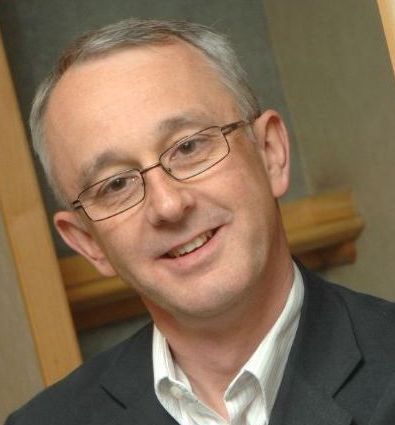
Steve Rees, VP Discovery Biology, Discovery Sciences, AstraZeneca

Steve Rees, VP Discovery Biology, Discovery Sciences, AstraZeneca
In March 2017 Steve was appointed as Vice-President of the Discovery Biology department at AstraZeneca with global accountability for protein and cellular reagent generation and assay development, functional genomics and chemical biology. Prior to this Steve led the Screening Sciences and Sample Management department and successfully implemented strategies for hit identification, compound profiling, sample management and open innovation. Steve has led multiple international collaborations and has authored >60 scientific papers. Steve is currently Chair of the European Laboratory Research and Innovation group (ELRIG), has served as Chair of the SLAS Europe Council, and is a member of the Scientific Advisory Board for Axol Biosciences, LifeArc and the Centre for Membrane Protein and Receptor research at the Universities of Nottingham and Birmingham.
| 16:00 - 17:00 |
Panel discussion: how do we effectively prioritise and translate promising research into real world interventions?

Dr Gary Hickey, INVOLVE

Dr Gary Hickey, INVOLVEDr Hickey is a Senior Public Involvement Manager at INVOLVE responsible for work on co-production in research and the development of an International Patient and Public Involvement network. INVOLVE was established in 1996 and is part of, and funded by, the National Institute for Health Research, to support active public involvement in NHS, public health and social care research. It is one of the few government funded programmes of its kind in the world. INVOLVE lead projects, develop guidance, provide advice, speak at events, write articles and seek to influence policy and practice within NHS, public health and social care research via their extensive networks. As a national advisory group INVOLVE's role is to bring together expertise, insight and experience in the field of public involvement in research, with the aim of advancing it as an essential part of the process by which research is identified, prioritised, designed, conducted and disseminated. 
Dr Greg Bailey, CEO of Juvenescence Ltd

Dr Greg Bailey, CEO of Juvenescence LtdDr Bailey is the CEO of Juvenescence Limited which has raised $165 million to develop drugs, IP protected non-RX products and other therapeutic modalities to modify aging and increase a healthy lifespan. The company uses strong seasoned drug professionals along with machine learning to develop drugs in partnership with Insilico Medicine and NetraMark. Gregory Bailey currently sits on the board of directors of 4 public companies Portage Biotech, Inc; AgeX Therapeutics, SalvaRx PLC; and Biohaven Pharmaceutical Holding Company Ltd. SalvaRx is an immune-oncology company which went public in February 2016. AgeX is focused on regenerative medicine using a variety of therapeutics including progenitor stem cells. Portage was the founder investor in Biohaven in January 2014 until a dividend of $200 million of Biohaven shares to Portage shareholders. Dr Bailey remains a major shareholder of Biohaven which went public on NYSE and has a market cap of a little over $2.6 billion. Dr Bailey received his medical doctorate from University of Western Ontario. 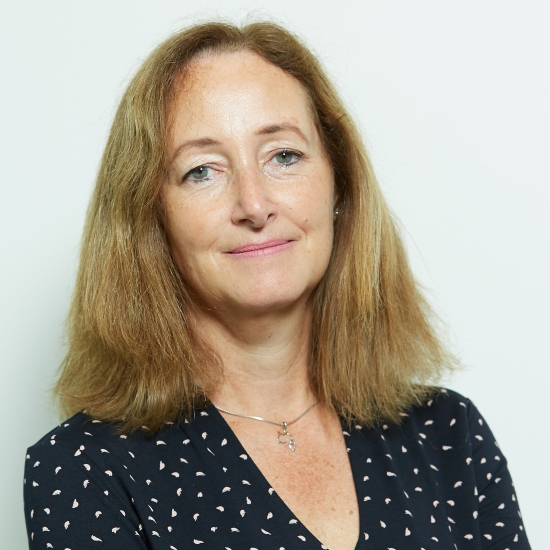
Dr Fiona Marshall FMedSci, Head of Neuroscience Discovery and Head of the Discovery Research Centre in London, MSD

Dr Fiona Marshall FMedSci, Head of Neuroscience Discovery and Head of the Discovery Research Centre in London, MSDFiona is Head of Neuroscience Discovery and Head of the new Discovery Research Centre in London for MSD which is focused on research into diseases of ageing. Previously Fiona was Chief scientific officer at SoseiHeptares. Fiona was a founder of Heptares Therapeutics a highly successful UK Biotech company focused on structure- based drug design. Fiona is most well known for her work in the field of G protein-coupled receptors and has published extensively in that field. Fiona won the 2012 WISE Women of Outstanding Achievement for Innovation and Entrepreneurship and the 2015 RSC Malcolm Campbell Award for chemistry. She is a Fellow of the Academy of Medical Sciences, Honorary Fellow of the British Pharmacological Society and Honorary Fellow of the Royal Society of Chemistry. 
George MacGinnis, Challenge Director, UK Research and Innovation

George MacGinnis, Challenge Director, UK Research and InnovationGeorge MacGinnis leads the £98 million Healthy Ageing Challenge, a research and innovation initiative to enable businesses, including social enterprises, to develop and deliver services and products, as well as the novel business models to enable them to be adopted at scale. This will enable people as they age to remain active, productive, independent and socially connected across generations for as long as possible. His previous work has focused on novel service propositions that empower service users, offer value to care systems and maximise the potential of digital technologies. This includes working at a system level to shape policy, evaluate future capacity needs and improve patient flow, supporting companies to enter new markets in health and establishing scalable technology ecosystems. His recent experience includes work in the Republic of Ireland, USA, the Nordics and Middle East as well as leading the user group for a global industry alliance to enable a consumer-friendly market for digital wellness and health products and services through standards. |
|---|
| 09:00 - 09:05 |
Welcome

Professor Sir Robert Lechler PMedSci, President, Academy of Medical Sciences

Professor Sir Robert Lechler PMedSci, President, Academy of Medical SciencesSir Robert is currently Provost and Senior Vice-President (Health) at King’s College London, and Executive Director of King’s Health Partners. He is a strong advocate of the Academic Health Science Centre model of university-healthcare partnerships. His clinical and research career have been focused on the pursuit of clinical transplantation tolerance. He worked in in vitro and in vivo rodent models. More recently he has helped to define biomarkers of clinical tolerance and is now helping to lead first in man trials of cell therapy to promote immune tolerance in recipients of kidney and liver organ transplants. Sir Robert has published over 200 papers in this field, led an EU consortium, and was awarded the Novartis Established Investigator Award by the American Transplant Society. In addition, Robert is a founding member of MedCity which fosters the South East England life sciences cluster, has served on the Mayor of London’s Health Board and was a Trustee and member of Council of the British Heart Foundation from 2010 – 2016. |
|---|
Chair

Dr Fiona Marshall FMedSci, Head of Neuroscience Discovery and Head of the Discovery Research Centre in London, MSD

Dr Fiona Marshall FMedSci, Head of Neuroscience Discovery and Head of the Discovery Research Centre in London, MSD
Fiona is Head of Neuroscience Discovery and Head of the new Discovery Research Centre in London for MSD which is focused on research into diseases of ageing. Previously Fiona was Chief scientific officer at SoseiHeptares. Fiona was a founder of Heptares Therapeutics a highly successful UK Biotech company focused on structure- based drug design. Fiona is most well known for her work in the field of G protein-coupled receptors and has published extensively in that field. Fiona won the 2012 WISE Women of Outstanding Achievement for Innovation and Entrepreneurship and the 2015 RSC Malcolm Campbell Award for chemistry. She is a Fellow of the Academy of Medical Sciences, Honorary Fellow of the British Pharmacological Society and Honorary Fellow of the Royal Society of Chemistry.
| 09:05 - 09:30 |
The Prevention of Alzheimer’s Disease: Life-course Brain Health Initiatives in Science and Practice
Over the last 10-15 years, major research initiatives led from within the UK are highlighting that the degenerative brain diseases which lead to dementia in late life have their genesis (at least) as early as midlife. This creates opportunities for early detection, risk profiling and implementation of personal prevention plans. Cohort Data from projects like EPAD and the PREVENT Dementia Program combined with real world data as contained within the Scottish Brain Health Register can be explored to provide the empirical basis for accurate risk prediction decades before dementia develops. The implementation of these approaches will be through Brain Health Clinical Services being established outside the traditional memory clinics across the UK. Novel and evidence based approaches to providing both individual and public health interventions to optimise brain health will yield tangible reductions in dementia incidence in the years ahead irrespective of the success or otherwise of developing new pharmacological interventions. 
Professor Craig Ritchie, Edinburgh Dementia Prevention, Centre for Clinical Brain Sciences, University of Edinburgh

Professor Craig Ritchie, Edinburgh Dementia Prevention, Centre for Clinical Brain Sciences, University of EdinburghCraig Ritchie is the Professor of Psychiatry of Ageing at the University of Edinburgh and also Director of Edinburgh Dementia Prevention having moved from his role as Senior Lecturer in the Centre for Mental Health at Imperial College London in October 2014. Appointed as Associate Director of the Edinburgh Clinic Research Facility (CRF) in 2016 and elected Chair of the Scottish Dementia Research Consortium (SDRC) in 2017, Craig also leads as Chief Investigator on the EPAD (European Prevention of Alzheimer's Dementia) Programme, the PREVENT Dementia Project and the Scottish Brain Health Register. Craig has recently been appointed an Associate Director of DPUK2 (Dementias Platform UK). |
|---|---|
| 09:30 - 09:55 |
Cognitive Ageing and Dementia: A Life-Span Perspective
In this presentation I review empirical findings and theoretical concepts in cognitive ageing and late-life dementia research, with emphases on (a) person-to-person heterogeneity in trajectories of cognitive change over time, (b) how trajectories of child cognitive development determine peak levels of adult cognitive function from which ageing-related cognitive declines occur, and (c) how lifelong trajectories of cognitive function relate to the timing of severe cognitive impairments characteristic of dementia. I consider conceptual issues surrounding categorical versus dimensional models of late-life dementia and discuss how current diagnostic approaches affect inferences in the empirical study of disease progression. Together, the incomplete current understanding of the biological foundations of ageing-related cognitive declines and the continuous nature of many biomarkers commonly used in dementia diagnosis and classification pose both opportunities and challenges in the current research landscape. 
Dr Elliot M Tucker-Drob, Department of Psychology and Population Research Center, University of Texas

Dr Elliot M Tucker-Drob, Department of Psychology and Population Research Center, University of TexasDr Elliot M Tucker-Drob is Associate Professor of Psychology and Psychiatry and faculty affiliate of the Population Research Center at the University of Texas at Austin. His research program seeks to clarify the biological, psychological, and social mechanisms that give rise to person-to-person variation in cognitive development, cognitive ageing, and risk for psychiatric disease and dementia. His work combines multivariate and longitudinal statistical methods with approaches from human genetics, neuroscience, psychiatric epidemiology, differential psychology, and demography. Dr Tucker-Drob's research is funded by the National Institute for Child Health and Human Development, the National Institute on Ageing, and the Jacobs Foundation. He is the 2019 recipient of the Max Planck-Humboldt Medal. |
| 09:55 - 10:20 |
Insights towards the development of new medicines for dementia
There are approximately 47 million people living with dementia globally for which there are currently no disease‐modifying treatments. Despite over 125 clinical trials in Alzheimer's Disease (AD), the largest group of dementia patients, there are still only 4 approved symptomatic agents. With age being the biggest risk factor, the number of patients suffering with AD is expected to reach over 130 million by 2050 and so the unmet need will grow substantially over the coming decades. Whilst previous clinical failures have questioned the basic understanding of the biology of the disease, there have been new advances in the field from genetic studies, use of human cells and major improvements in imaging technologies. Using this information, a collaborative effort from the pharmaceutical, biotechnology and academic sectors is now required to translate this basic research to the delivery of new treatments in the most appropriate stratified clinical population. 
Dr Jill Richardson, Senior Director, Discovery Research MRL UK, MSD

Dr Jill Richardson, Senior Director, Discovery Research MRL UK, MSDSenior Research Director at MSD with 25 years of leading drug discovery programmes in the field of neuroscience. After completing a post-doc at the National Institutes of Health, Bethesda, US, joined GlaxoSmithKline and held several leadership positions including Head of Neurodegeneration Research, Target Validation and Synaptic Plasticity and Neural Network Departments. External appointments have included the EFPIA leader of the IMI PharmaCog Alzheimer's Disease public-private alliance, Executive Committee Member of a Wellcome Trust Neuroimmunology public-private alliance and Visiting Professorship at Imperial College London. Expertise across a breadth of target classes and neurological/autoimmune indications including Alzheimer's disease, epilepsy, multiple sclerosis and pain resulting in around 100 research publications. |
| 10:20 - 10:45 |
AI-driven approaches for preventative healthcare
The last decade has seen major advances in artificial intelligence that are now being translated into real world impact. In healthcare dozens of research papers have now been published that demonstrate how AI systems can make sense of complex health data and match and even exceed the performance of expert clinicians. This presentation will cover the promise from using AI to move care from reactive to proactive and preventative but also the major barriers and challenges that need to be overcome to be successful. 
Dr Dominic King, UK Lead, Google Health

Dr Dominic King, UK Lead, Google HealthDominic leads the UK team of Google Health - a team which has recently moved from DeepMind Health. At DeepMind Health, his team advanced AI research projects in medical imaging and electronic health records that led to publications in Nature and Nature Medicine. They also built Streams, a mobile medical assistant for clinicians that is currently deployed in leading NHS hospitals and has been proven to deliver faster, better care and reduce costs. Dominic is a Clinical Lecturer at Imperial College London, where he previously worked for nearly a decade as an academic general surgeon. He has published >100 academic articles in patient safety, digital health and public policy. Dominic has a PhD in Behavioural Economics and co-wrote the 'Mindspace' framework, which was used by the UK Prime Minister to establish the Number 10 'Nudge Unit' or Behavioural Insights Team. The clinical app company he co-founded, Hark, was acquired by Google in early 2016. |
Chair

Dr Fiona Marshall FMedSci, Head of Neuroscience Discovery and Head of the Discovery Research Centre in London, MSD

Dr Fiona Marshall FMedSci, Head of Neuroscience Discovery and Head of the Discovery Research Centre in London, MSD
Fiona is Head of Neuroscience Discovery and Head of the new Discovery Research Centre in London for MSD which is focused on research into diseases of ageing. Previously Fiona was Chief scientific officer at SoseiHeptares. Fiona was a founder of Heptares Therapeutics a highly successful UK Biotech company focused on structure- based drug design. Fiona is most well known for her work in the field of G protein-coupled receptors and has published extensively in that field. Fiona won the 2012 WISE Women of Outstanding Achievement for Innovation and Entrepreneurship and the 2015 RSC Malcolm Campbell Award for chemistry. She is a Fellow of the Academy of Medical Sciences, Honorary Fellow of the British Pharmacological Society and Honorary Fellow of the Royal Society of Chemistry.
| 11:15 - 11:40 |
Multimorbidity: a life course approach to intervention
Multimorbidity, the existence of two or more chronic conditions, increases with age, affecting two thirds of people aged 65 plus. This has significant adverse consequences for frailty, hospital admission, loss of independence and mortality. Care guidelines focus on interventions for high risk individuals with established, advanced disease. Yet few evidence-based interventions are available, and at this late stage can only briefly postpone the inevitable consequences. A life course approach to understand social and biomedical determinants of multimorbidity, identify sensitive or critical periods, and discover measures to enhance resilience to its ill effects, should provide a more effective means of intervention and risk reduction. 
Professor Nish Chaturvedi, MRC Unit for Lifelong Health and Ageing, UCL

Professor Nish Chaturvedi, MRC Unit for Lifelong Health and Ageing, UCLProfessor Chaturvedi obtained her first degree in medicine at London University in 1985, and then went on to specialist training in general medicine, public health and epidemiology. Her post-doctoral positions were held at the Department of Epidemiology at UCL, specialising in the epidemiology of diabetes. Professor Chaturvedi was appointed to a chair of clinical epidemiology in the National Heart & Lung Institute at Imperial College London in 2000. She returned to a chair in clinical epidemiology in the Institute of Cardiovascular Sciences at UCL in 2013, and was awarded Directorship of the MRC Lifelong Health and Ageing Unit at UCL in 2017. |
|---|---|
| 11:40 - 12:05 |
Designing new trials in inflammation: The Arthritis Therapy Acceleration Programme
The Arthritis Therapy Acceleration Programme (A-TAP) is an alliance between the University of Oxford and Birmingham. Its aim is to use Basket trials, Bayesian statistics and Cell Based Outcome Measures to determine efficacy and de-risk early stage trials of drugs that target immune mediated inflammatory diseases. Working with seven different NHS Trusts along the M40 corridor, the A-TAP delivers "stratified pathology" namely process driven, pathway focused, studies to deliver the right drug for the right disease indication. This complements the current drive for "stratified medicine", which aims to deliver the right drug for the right patient. The A-TAP strategy has potential to be adopted in other areas such as ageing and multi-morbidity. 
Professor Chris Buckley, Kennedy Professor of Translational Rheumatology, Universities of Oxford and Birmingham

Professor Chris Buckley, Kennedy Professor of Translational Rheumatology, Universities of Oxford and BirminghamProfessor Chris Buckley obtained a degree in Biochemistry from the University of Oxford (1985) with subsequent undergraduate training in Medicine (MBBS) at the Royal Free Hospital, London (1990). Buckley's postgraduate medical training was in General Medicine and Rheumatology at the Hammersmith Hospital, London (Mark Walport, Dorian Haskard), and John Radcliffe Hospital, Oxford. He obtained a DPhil arising from a Wellcome Trust Clinical Training Fellowship with John Bell and David Simmons at the Institute Molecular Medicine, Oxford in 1996. Funded by a Wellcome Trust Clinician Scientist Fellowship, Buckley joined the Department of Rheumatology in Birmingham later that year. In 2001 he was awarded an MRC Senior Clinical Fellowship and in 2002 became Arthritis Research UK Professor of Rheumatology. In 2012 he was appointed Director of the Birmingham NIHR Clinical Research Facility. In May 2017 Buckley took up a new joint academic post between the Universities of Birmingham and Oxford as Director of Clinical Research at the Kennedy Institute of Rheumatology Oxford and Director of NIHR Infrastructure in Birmingham for Birmingham Health Partners to Direct the Arthritis Therapy Acceleration Programme (A-TAP). |
| 12:05 - 12:30 |
Technology to increase patient compliance
This talk summarises the issues with adherence and explores the reasons why patients are non-adherent. It will also explore the technologies available to improve adherence and provide reasons why so many solutions fail, as well as providing examples of successful solutions and the characteristics they share. Finally, Matt will show how designing technology solutions for an ageing population maximises the impact of these solutions in improving adherence and delivering improved clinical outcomes. 
Matt Bonam, AstraZeneca Biopharma R&D

Matt Bonam, AstraZeneca Biopharma R&DDuring his 19 years at AstraZeneca, Matt has moved through a number of technical line management and project management roles within the business and is currently the Global Head of R&D Digital Patient Health. Matt's academic background is as a chemist, obtaining his degree at University of Liverpool before moving into the Pharma industry initially as an analytical scientist characterising product performance before moving into project management and project leadership before founding a digital health innovation group within AZ. The R&D Digital Patient Health group's mission is to develop digital health solutions which deliver improved clinical outcomes for patients. The group develops tools for use in all phases of the pharmaceutical product lifecycle, delivering its products globally across all therapy areas in which AZ has focus. Having started his career characterising the impact of medication use and misuse on drug delivery Matt is delighted to now be able to deliver tools to patients which robustly improve medication use, collect data directly from patients to support self-management, and improve clinical outcomes. |
Chair
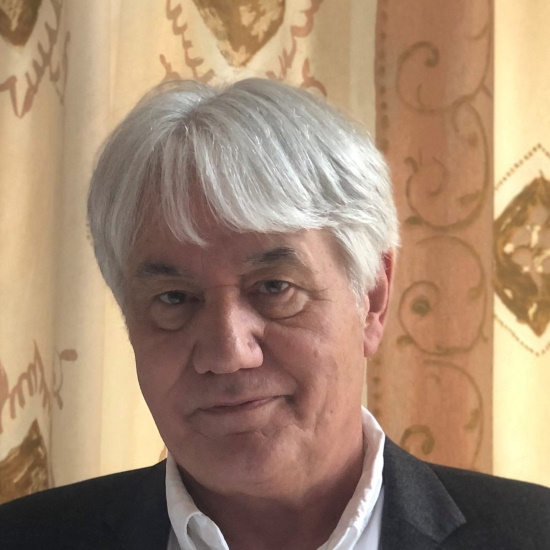
Professor Andrew Steptoe FBA FMedSci, University College London, UK

Professor Andrew Steptoe FBA FMedSci, University College London, UK
Andrew Steptoe is professor of psychology and epidemiology at University College London, where he is Head of the Department of Behavioural Science and Health, and director of the English Longitudinal Study of Ageing (ELSA). He graduated in Natural Sciences from Cambridge University and completed his doctorate at the University of Oxford. He was head of the Department of Psychology at St. George’s Hospital Medical School before moving to University College London in 2000. He was British Heart Foundation Professor of Psychology from 2000 until 2016, and Director of the Institute of Epidemiology and Health Care from 2011 until 2017. He is a Fellow of the British Academy, the Academy of Medical Sciences, and the Academy for Social Sciences. He is author or editor of 22 books and around 950 journal articles and chapters. Dr Steptoe’s research is primarily focused on links between psychological and social processes and health, and on population ageing.
| 13:20 - 13:45 |
AI and Technology for Dementia Care
We are living in an increasingly interconnected world, in which technology allows us to access information and services to interact with people, objects and devices remotely. Advanced connected technologies and Artificial Intelligence (AI) allow us to tackle some of the key challenges faced by our communities. With growing environmental challenges and an ageing population, we need to find effective solutions to make our living environment more sustainable and develop services to provide more effective health and care support. This talk will discuss part of our research in Care Research and Technology Centre at the UK Dementia Research Institute. We will discuss the development of a digital platform using AI and connected in-home sensors to enable remote monitoring and timely interventions to support people affected with dementia. 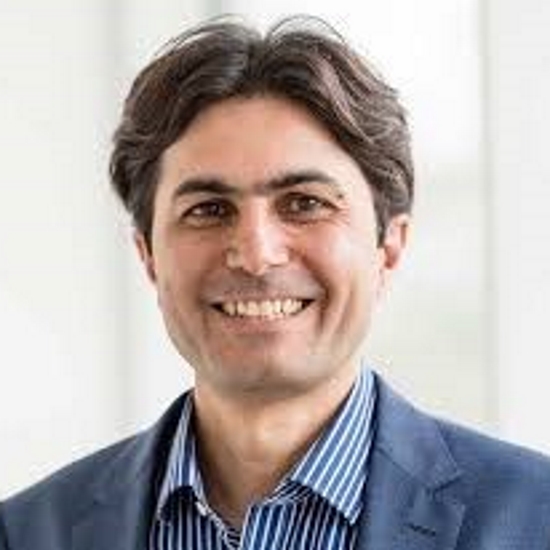
Professor Payam Barnaghi, University of Surrey

Professor Payam Barnaghi, University of SurreyPayam Barnaghi is Professor of Machine Intelligence in the Centre for Vision, Speech and Signal Processing (CVSSP) at the University of Surrey. He works on the development of machine learning and semantic computing algorithms and techniques for future internet and web systems, with a focus on Internet of Things, time-series data analysis, information search and retrieval and their applications in healthcare and smart environments. He is deputy head of Care Research and Technology Centre at the UK Dementia Research Institute. He was Technical Lead of the Technology Integrated Healthcare Management (TIHM) for Dementia project. |
|---|---|
| 13:45 - 14:10 |
The Determinants and Effects of Meaning and Purpose in Ageing
The presentation will give an overview of recent research on the role of meaning and purpose in ageing. Analyses from the Health and Retirement Study and the Nurses' Health Study on the determinants and effects of meaning and purpose will be described. These analyses will include assessments of the effects of purpose on health, longevity, alleviating depression, and life satisfaction. Further attention will be given to what factors in a person's life create a sense of meaning and purpose. Various approaches on how to better track meaning and purpose throughout the life course will be presented, and discussion will be given to how "meaning" and "purpose", while often used interchangeably, in fact represent distinct constructs and may have different determinants and effects. 
Professor Tyler J VanderWeele, Harvard University, University of Oxford (Visiting)

Professor Tyler J VanderWeele, Harvard University, University of Oxford (Visiting)Tyler J VanderWeele PhD is the John L Loeb and Frances Lehman Loeb Professor of Epidemiology in the Departments of Epidemiology and Biostatistics at the Harvard TH Chan School of Public Health, Director of the Human Flourishing Program and Co-Director of the Initiative on Health, Religion and Spirituality at Harvard University, and 2019-2020 George Eastman Visiting Professor at the University of Oxford. He holds degrees from the University of Oxford, University of Pennsylvania, and Harvard University in mathematics, philosophy, theology, finance and applied economics, and biostatistics. His research concerns methodology for distinguishing between association and causation in observational studies, and the use of statistical and counterfactual ideas to formalize and advance epidemiologic theory and methods. His empirical research spans psychiatric, perinatal, and social epidemiology; the science of happiness and flourishing; and the study of religion and health, including both religion and population health and the role of religion and spirituality in end-of-life care. He is the recipient of the 2017 COPSS Presidents' Award from the Committee of Presidents of Statistical Societies. He has published over three hundred papers in peer-reviewed journals, and is author of the book Explanation in Causal Inference, published by Oxford University Press. |
| 14:10 - 14:35 |
Social prescribing for prevention and management of illness in older age: findings from clinical trials, cohort studies and electronic patient data
Over the past few years, referrals to non-medical treatments ("social prescribing") have become increasingly popular in various countries globally. This talk will explore the pathways involved in social prescribing referrals and describe the roll-out of the scheme in the UK within the National Health Service. It will present data from clinical trials and observational data on the potential efficacy of these programmes for the prevention and management of different mental and physical health conditions in older adults and explore the theory behind social prescribing as a complex adaptive health intervention and some of the primary mechanisms of action. It will also present preliminary data on the cost effectiveness of the scheme gathered from UK evaluations and consider the demographic and health characteristics of individuals who have been receiving and refusing social prescribing in the first six months of the scheme in the UK. 
Dr Daisy Fancourt, Associate Professor of Psychobiology & Epidemiology, UCL

Dr Daisy Fancourt, Associate Professor of Psychobiology & Epidemiology, UCLDr Daisy Fancourt is Associate Professor of Psychobiology & Epidemiology and a Wellcome Research Fellow at University College London. Her research focuses on the effects of social, cultural and community engagement on health and has been recognised with awards from the British Science Association, Leverhulme Trust, Wellcome Trust, British Academy, British Federation of Women Graduates, American Psychosomatic Society, Arts and Humanities Research Council, Royal Society for Public Health and NHS England. Daisy is currently a consultant to the World Health Organisation, recently publishing an evidence synthesis of 3,500 studies on arts and health that was named the Global Aesthetic Achievement of 2019. She also works closely with NHS England and Public Health England on the evaluation of social prescribing and leads the UK MARCH Mental Health Research Network, bringing together over 1200 researchers and community organisations focusing on community assets and mental health. Daisy has been named a BBC New Generation Thinker and a World Economic Forum Global Shaper. |
| 14:35 - 15:00 |
The opportunities in Dementia
Dementia is the biggest challenge facing health and social care. It affects some 850,000 people in the UK and is unique in the effect it has on carers of people with the condition. Costs are in the order of £26 billion per year and are divided between health and social care. Dementia is the leading cause of death in England and significant successes have been achieved over the last few years in terms of raising awareness of dementia, investment in research and increasing the number of people receiving a formal diagnosis. Treatments for dementia and one of its commonest causes, Alzheimer's disease, have so far eluded science but advances are taking place. A large body of research directed at symptomatic improvement in people with the condition, support for them and importantly, for their carers and families, has been carried out. The National Health Service's Long Term Plan provides the opportunity to significantly continue the improvement in terms of diagnosis and post diagnostic care. 
Professor Alistair Burns, National Clinical Director for Dementia and Older People’s Mental Health NHS England/NHS Improvement

Professor Alistair Burns, National Clinical Director for Dementia and Older People’s Mental Health NHS England/NHS ImprovementAlistair Burns is Professor of Old Age Psychiatry at The University of Manchester and an Honorary Consultant Old Age Psychiatrist in the Greater Manchester Mental Health NHS Foundation Trust. He is the National Clinical Director for Dementia and Older People's Mental Health at NHS England and NHS Improvement. He graduated in medicine from Glasgow University in 1980, training in psychiatry at the Maudsley Hospital and Institute of Psychiatry in London. He became the Foundation Chair of Old Age Psychiatry in The University of Manchester in 1992, where he has variously been Head of the Division of Psychiatry and a Vice Dean in the Faculty of Medical and Human Sciences, with responsibility for liaison within the NHS. He set up the Memory Clinic in Manchester and helped establish the old age liaison psychiatry service at Wythenshawe Hospital. He is a Past President of the International Psychogeriatric Association. He was Editor of the International Journal of Geriatric Psychiatry for twenty years, (retiring in 2017) and is on the Editorial Boards of the British Journal of Psychiatry and International Psychogeriatrics. His research and clinical interests are in mental health problems of older people, particularly dementia and Alzheimer's disease. He has published over 300 papers and 25 books. He was made an honorary fellow of the Royal College of Psychiatrists in 2016, received the lifetime achievement award from their old age Faculty in 2015 and was awarded the CBE in 2016 for contributions to health and social care, in particular dementia. |
Chair

Professor Andrew Steptoe FBA FMedSci, University College London, UK

Professor Andrew Steptoe FBA FMedSci, University College London, UK
Andrew Steptoe is professor of psychology and epidemiology at University College London, where he is Head of the Department of Behavioural Science and Health, and director of the English Longitudinal Study of Ageing (ELSA). He graduated in Natural Sciences from Cambridge University and completed his doctorate at the University of Oxford. He was head of the Department of Psychology at St. George’s Hospital Medical School before moving to University College London in 2000. He was British Heart Foundation Professor of Psychology from 2000 until 2016, and Director of the Institute of Epidemiology and Health Care from 2011 until 2017. He is a Fellow of the British Academy, the Academy of Medical Sciences, and the Academy for Social Sciences. He is author or editor of 22 books and around 950 journal articles and chapters. Dr Steptoe’s research is primarily focused on links between psychological and social processes and health, and on population ageing.
| 15:30 - 16:00 |
Keynote - Current research directions and population need, contexts and futures for our ageing populations
This talk will attempt to bring together some of the implications of research and evidence presented at this conference. This will be contextualised drawing on relevant existing population representative and derived studies and broader multidisciplinary sources. In particular there will be a focus on changing life expectancies, Sustainable Development Goals and rapidly rising concern about our ability to address own own species impact on climate and environmental integrity. An ageing focus throws up a different perspective on these, including how we review and assess the evidence base to address current challenges and future scenarios. 
Professor Carol Brayne CBE FMedSci, Director of Cambridge Institute of Public Health, University of Cambridge

Professor Carol Brayne CBE FMedSci, Director of Cambridge Institute of Public Health, University of CambridgeCarol Brayne is a Professor of Public Health Medicine and Director of the Cambridge Institute of Public Health in the University of Cambridge. She is a medically qualified epidemiologist and public health academic. Her main research has been longitudinal studies of older people following changes over time with a public health perspective and a focus on the brain. She is lead principal investigator in the MRC CFA Studies and other population based studies and has played a lead role in teaching and training in epidemiology and public health at Cambridge University. She is a Fellow of the Academy of Medical Sciences, a NIHR Senior Investigator and was awarded a CBE in the Queen's Honours in 2017. |
|---|---|
| 16:00 - 17:00 |
Panel discussion: Inequalities and avoiding harm

Professor Carol Brayne CBE FMedSci, Director of Cambridge Institute of Public Health, University of Cambridge

Professor Carol Brayne CBE FMedSci, Director of Cambridge Institute of Public Health, University of CambridgeCarol Brayne is a Professor of Public Health Medicine and Director of the Cambridge Institute of Public Health in the University of Cambridge. She is a medically qualified epidemiologist and public health academic. Her main research has been longitudinal studies of older people following changes over time with a public health perspective and a focus on the brain. She is lead principal investigator in the MRC CFA Studies and other population based studies and has played a lead role in teaching and training in epidemiology and public health at Cambridge University. She is a Fellow of the Academy of Medical Sciences, a NIHR Senior Investigator and was awarded a CBE in the Queen's Honours in 2017. 
Professor Dame Theresa Marteau DBE FMedSci, University of Cambridge

Professor Dame Theresa Marteau DBE FMedSci, University of CambridgeProfessor Theresa Marteau is Director of the Behaviour and Health Research Unit in the Clinical School at the University of Cambridge, and Director of Studies in Psychological and Behavioural Sciences at Christ's College, Cambridge. Her research interests include: 
Dr Alison Giles, Associate Director for Healthy Ageing, Centre for Ageing Better/Public Health England

Dr Alison Giles, Associate Director for Healthy Ageing, Centre for Ageing Better/Public Health EnglandAlison Giles is Associate Director for Healthy Ageing, a joint appointment with Public Health England, with responsibility for shaping the strategic direction and delivery of programmes to promote wellbeing and health in older adults. Alison has enjoyed over 20 years in senior national strategic roles in the health field spanning the voluntary sector, DHSC, the NHS, and social enterprise. She has a deep understanding of the life course approach to promoting wellbeing and health, and significant experience of building partnerships and collaborations across sectors to tackle the wider determinants of health. She has a PhD in biochemistry from the Institute of Cancer Research, and a Masters in Public Health. 
Ruthe Isden, Head of Health Influencing, Age UK

Ruthe Isden, Head of Health Influencing, Age UKRuthe Isden works for Age UK, the country's largest charity working on behalf of people in later life, as the Head of Health Influencing leading the organisation's policy and external advocacy work on health and social care. Ruthe joined the organisation as the Health and Social Care Programme Manager in 2010 having previously worked within Parliament as a senior policy advisor before moving on to lead the policy secretariat at the British Dental Association. Ruthe's policy interests include health and social care integration, public service reform in the context of an ageing population and improving patient experience. |

